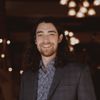2024 Event and Festival Report
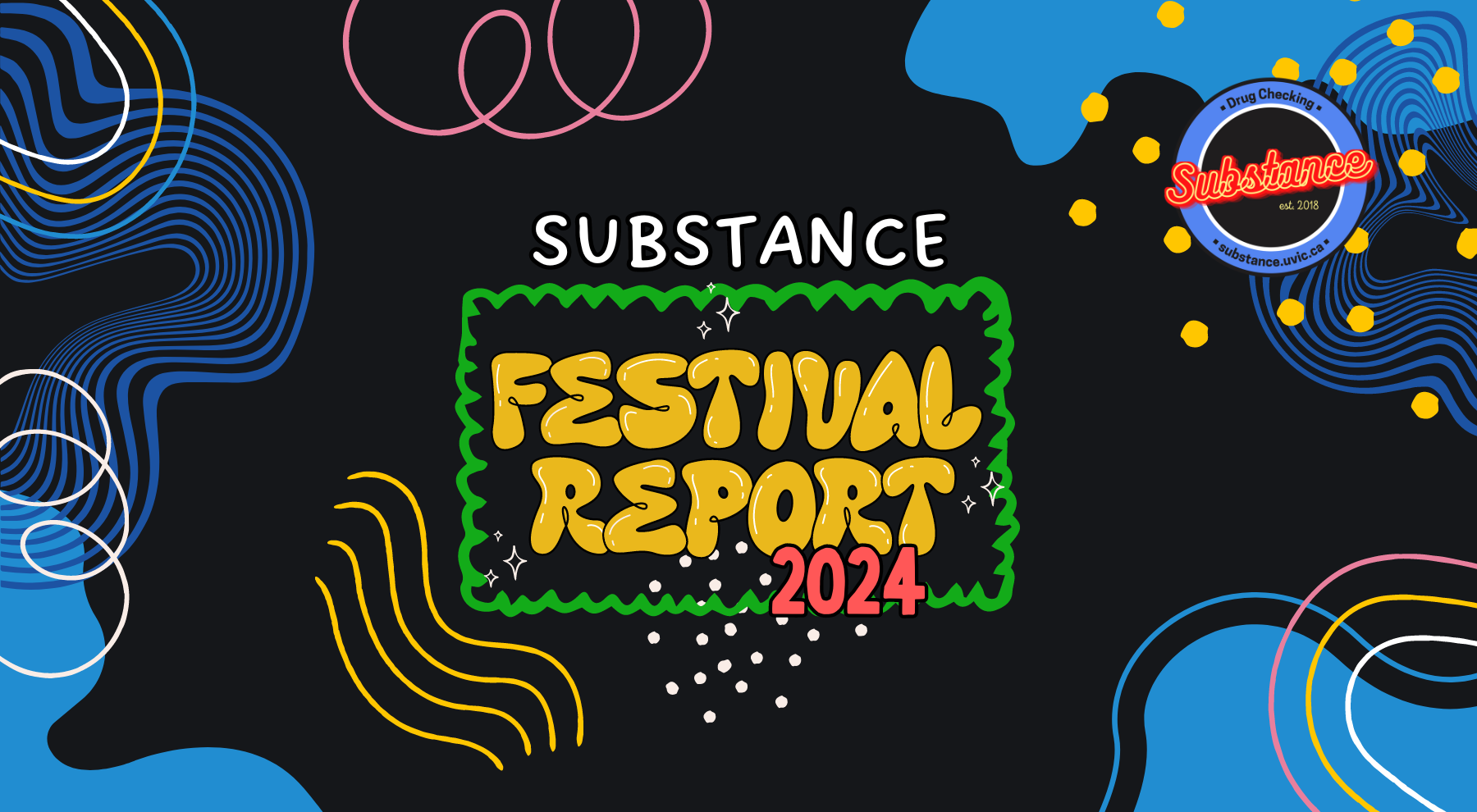
During summer 2024, known as "festival season" by some, Substance provided drug checking at seven music festivals and two community events. Over the course of the season, we checked a total of 251 samples, providing important information to 181 individuals. Otherworld, Vancouver Island's regional burning man event, was our busiest event of the summer. Over the course of four days, we checked a total of 115 samples brought in by 78 unique Otherworldians! The second busiest event was Samsara Music Festival, where we checked 43 samples over the course of three days. Samsara was also the second busiest event last festival season. The third busiest event was Pachena Bay Music Festival, where we checked 39 samples. More information about each event can be found below in table 1.
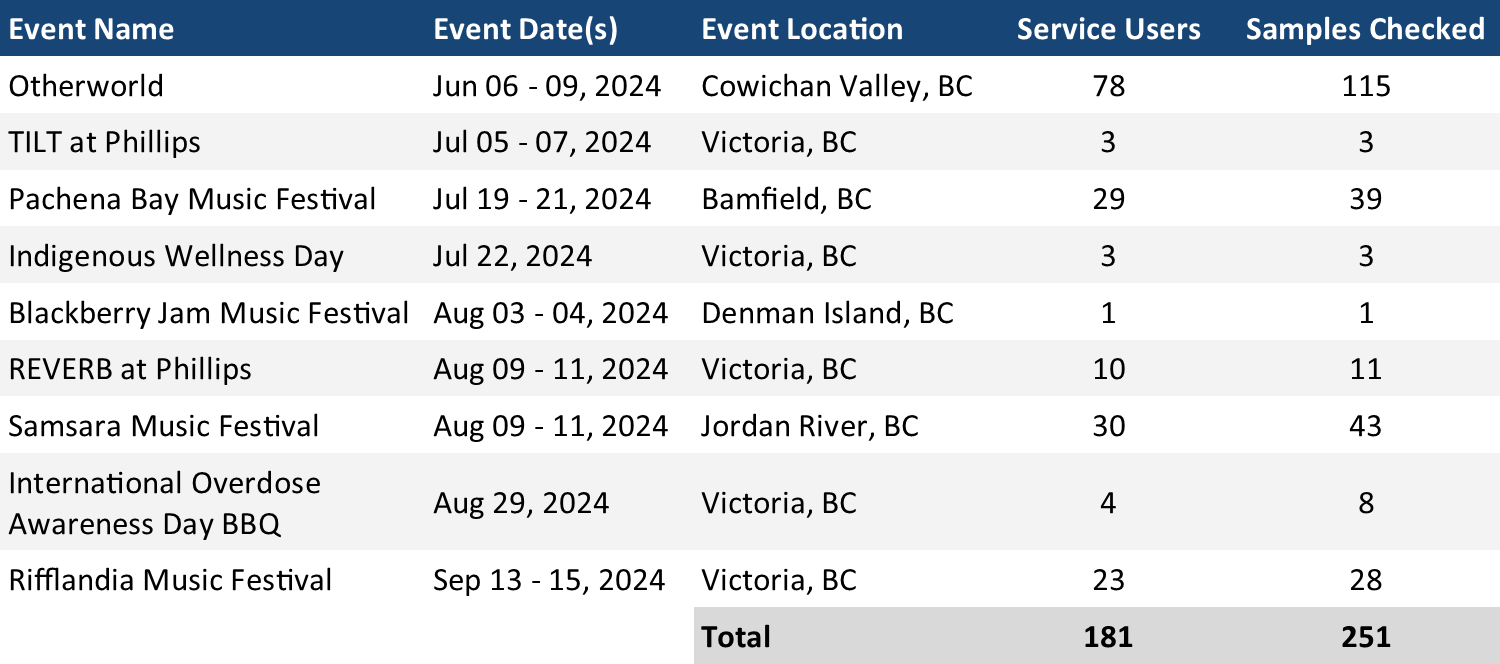
Event based drug checking not only provides useful information to people who use drugs, it also acts as a form of outreach by engaging people who are new to having their substances checked. As part of our intake survey, we asked whether or not a service user has accessed any drug checking service before (whether that is our service or any other drug checking service). What we found was that 51.4% (92/179) of service users who responded to the intake survey had not used a drug checking service before. When compared with data collected at our storefront location in Victoria, only 20.9 (233/1073) service users were new to drug checking. This suggests that event based drug checking is a viable method to expand the reach and accessibility of drug checking, especially to new
service users. Figure 1 shows the number of service users who have and have not accessed a drug checking service before for each event.
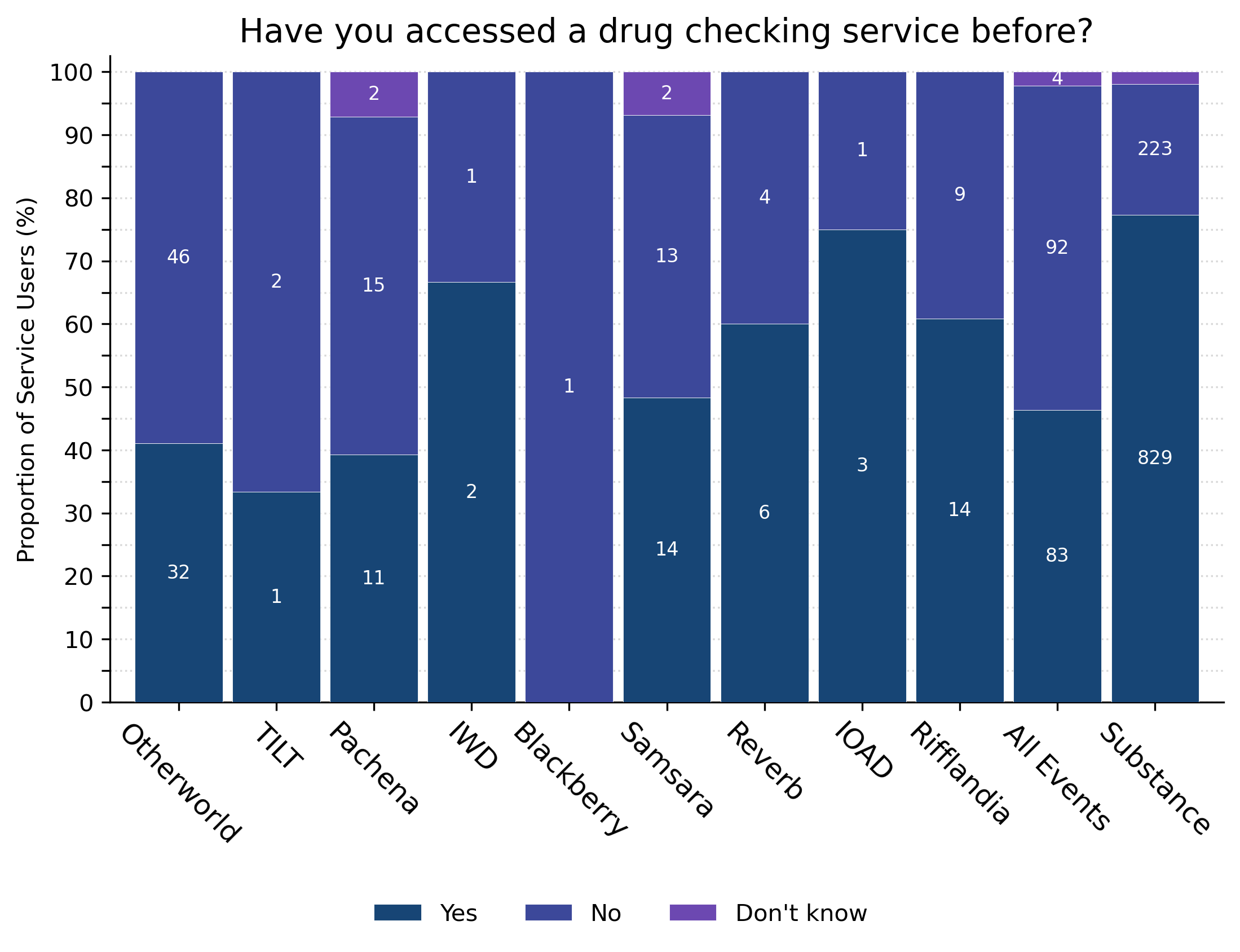
People may want to check their drugs for a variety of different reasons, and we will examine some of those reasons on the following page. One possible reason would be to better inform themselves prior to taking the drug. On the other hand, maybe the sample was already taken and they wish to better understand why their experience on the substance. We found that 55.6% of all event goers have not tired their sample and 36.5% have tried their sample.When compared with data collected at our storefront, we have see that this roughly the same distribution ofanswers, with 50.3% of all storefront service users having not tried their sample and 37.4% having tried their sample. Figure 2 shows the responses for the question of "Have you or someone you know tried the sample?"
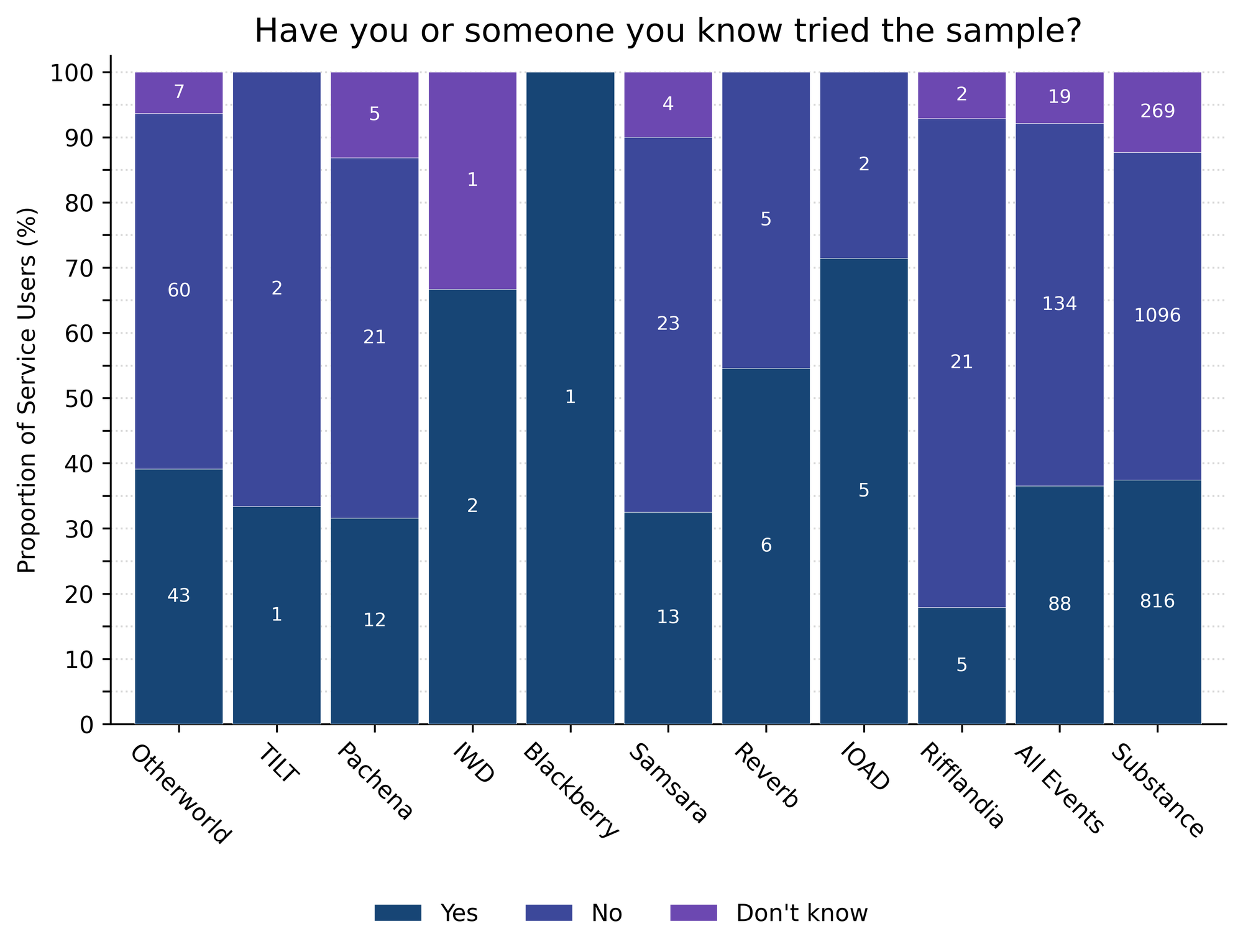
Whether or not people are checking their substance pre or post consumption, there are a multitube of reasons that someone might have their substance checked. As part of our intake survey we ask "Why are you checking your drugs?" with the possible answers of: "For the safety of myself and/or others", "To confirm the active ingredient", "To check for notable adulterants, or contaminants", "To check the drug to sell", "Wanted harm reduction advice", "Curious about drug checking", "Someone overdosed on it", "Don't know", and "Other", and the possibility to select multiple answers. In figure 3, for each possible answer we show the proportion of total responses, aggregated for for each event, and compared to the data collected at Substance. While “safety”, “confirming the active” and “checking for adulterants” were the most common responses that people gave for why they were checking their drugs at festivals and at Substance alike, we can see that "curiosity" and "harm reduction advice" was a larger driver for people to get their drugs checked at events than at Substance.
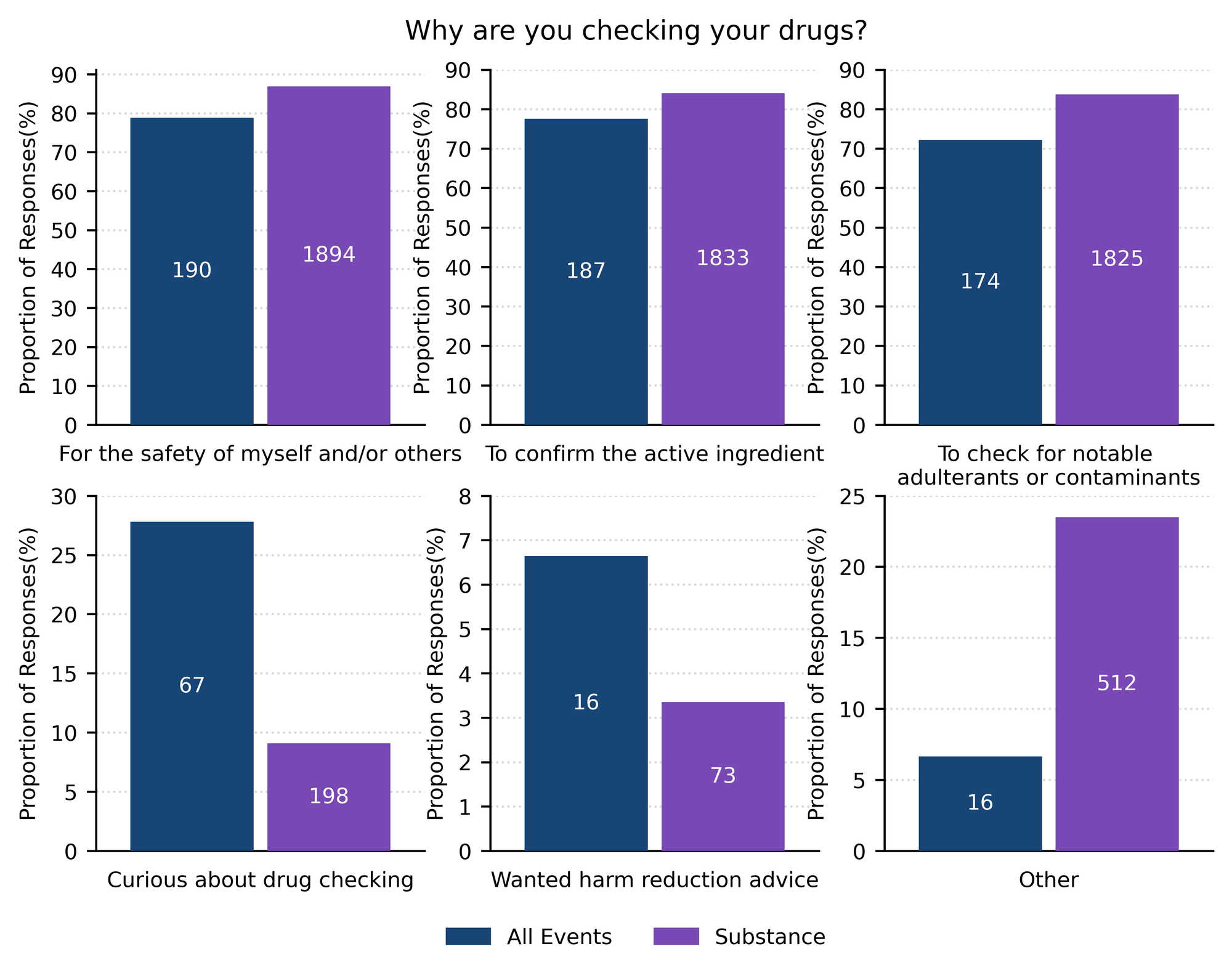
Similar to the previous section, we asked service users who they were getting their drugs checked for, with the following possible answers: "Self", "Friends", "Family", "To sell", "Clients", "Other", and the option to select multiple answers. In figure 4, for each possible answer we show the proportion of total responses, aggregated for each event, and compared to the data collected at Substance. Of note, more than half of the service users at events responded that they were checking their sample for themselves and for friends. Considering a majority of the service users at events were new to drug checking and that a majority of service users were also checking for friends, these data highlight the extended reach in service provision of event-based drug checking.
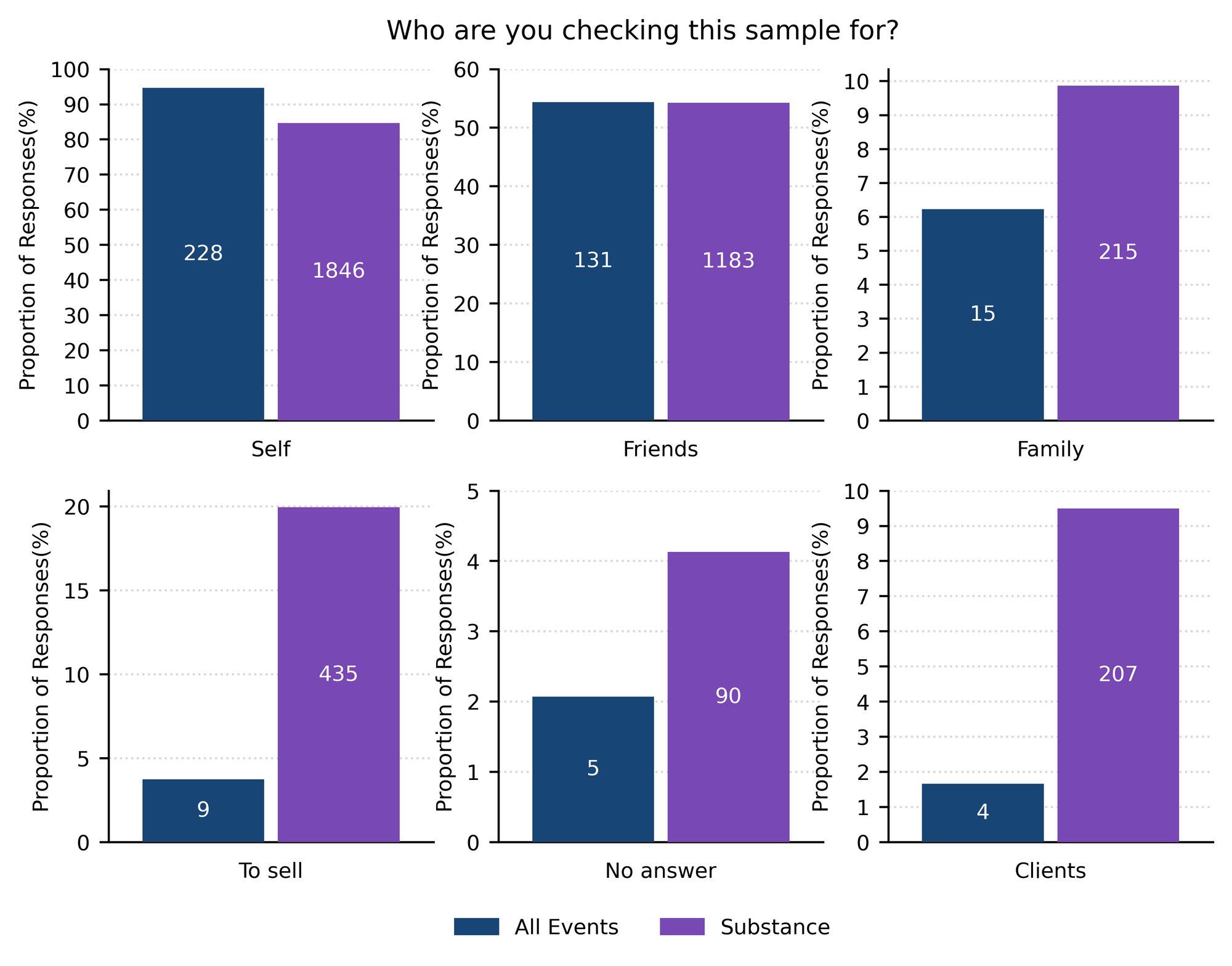
Moving on from the who, when, where, and why of festival drug checking and onto the what. MDMA, cocaine, and dissociatives, such as ketamine, were the most often expected class of drugs checked at events and festivals this summer. Below in figure 5, we stack the percentage of total samples represented by each drug category, with the number of samples checked and their respective relative proportions overlaid in each bar. Proportions less than 1% are omitted for clarity.
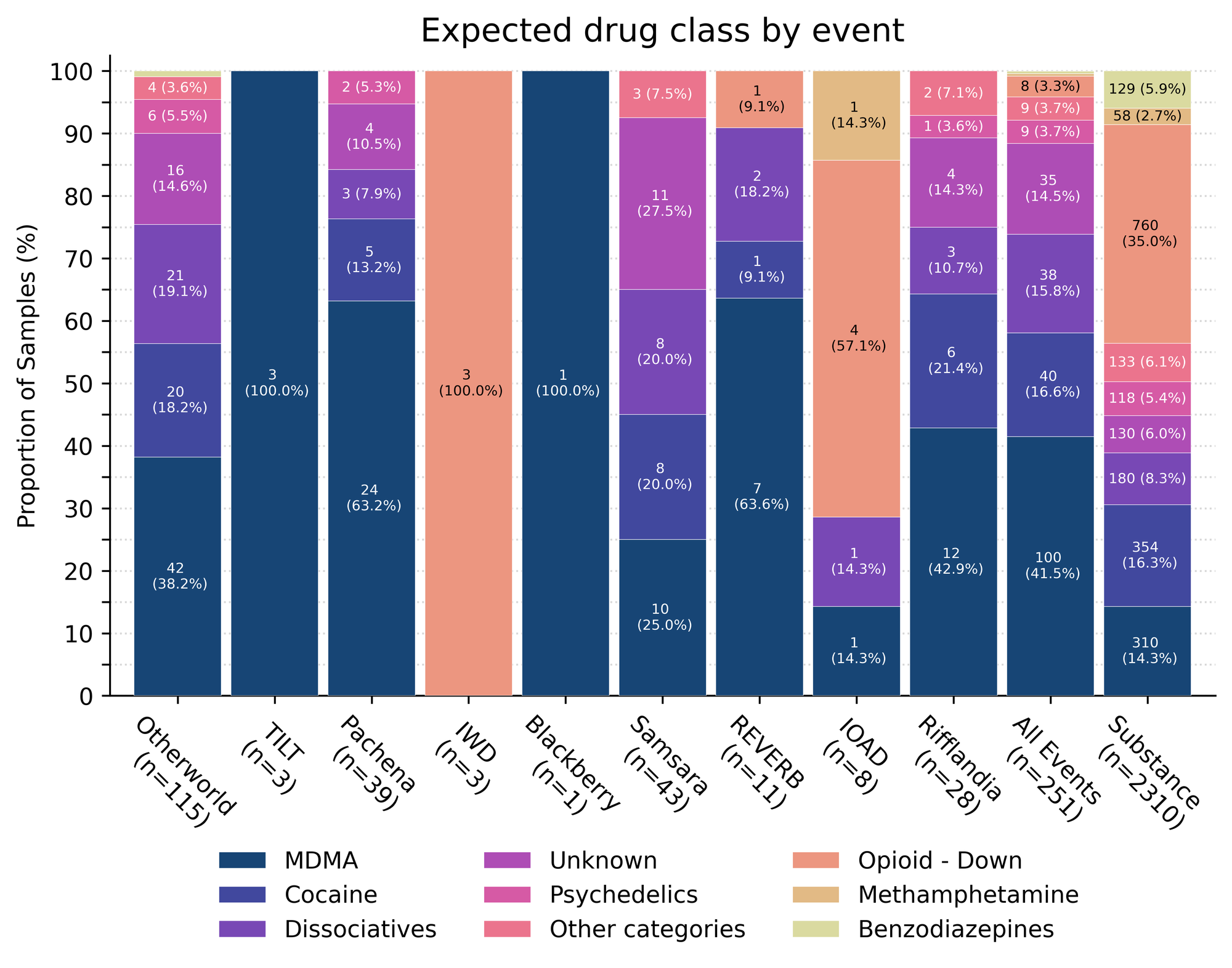
Overall, the 2024 festival season was another succesfull season of checking drugs, made possible by WILD Collaborative Harm Reduction Services and Island Health, who provided important funding to make event drug checking a reality. We would also like to thank all the festival and event producers who welcomed our critical harm reduction services in their events: Phillips Backyard, Kindle Arts Society & the Otherworld Harm Reduction Team, Mt. Eliah, Cumberland Village Works, QomQem, Island Live Concerts, Wildlife Division, and Rifflandia.
If you would like to take a look at the more detailed checking report for the 2024 festival season, including all detected active components and a deeper look at survey data collected at Otherworld, the full report can be found below. Furthermore, if you'd to get all of our reports in your inbox, feel free to sign up for a our mailing list!
